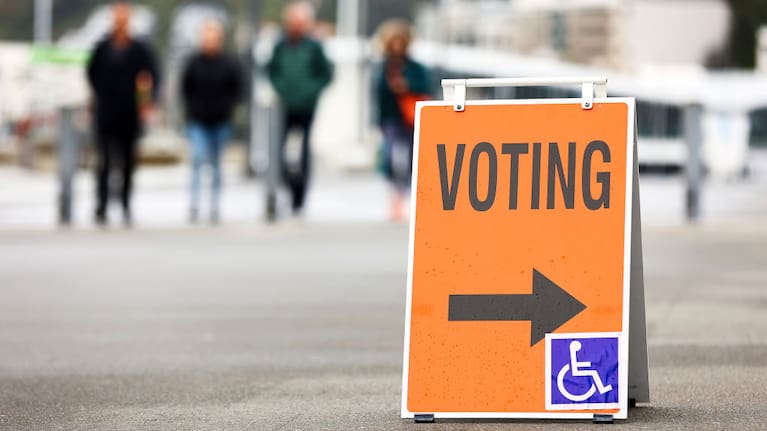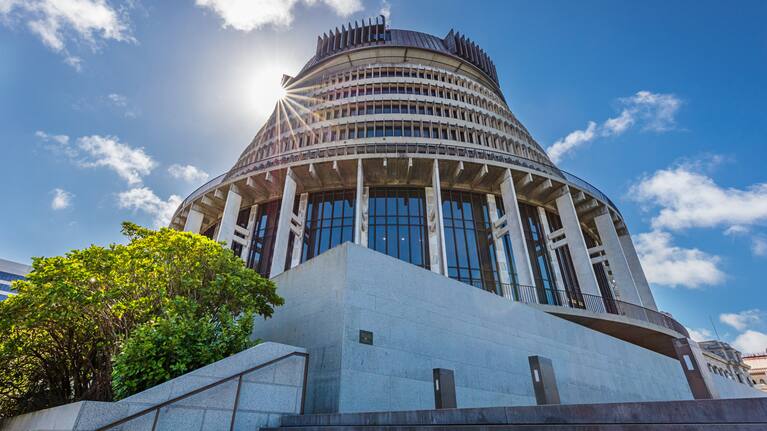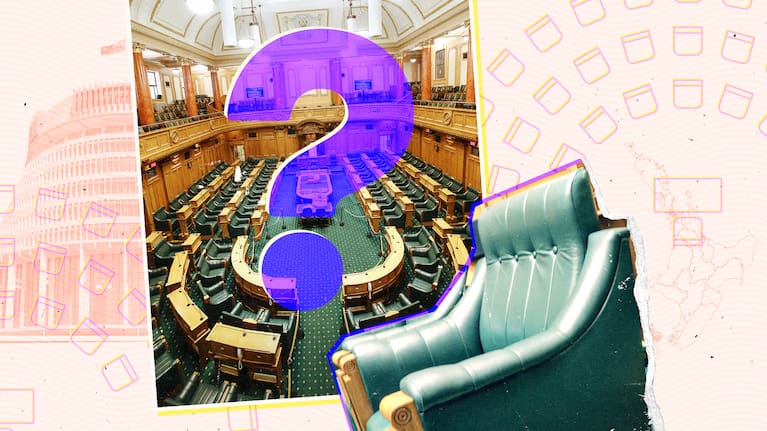After three years of a single-party majority in Parliament, New Zealand is on track to return to the usual MMP fare of a coalition government after election day.
The exact make-up of seats in Parliament is, of course, still very much up in the air, but recent polling suggests a couple of scenarios are looking more likely than others.
One of those is National and ACT holding a slim majority together, somewhere very close to the 61 seats needed to form a government.
Another is National and ACT needing to include New Zealand First in a coalition agreement.
Based on the latest 1News Verian polling numbers, this would give those three parties a more comfortable voting bloc of 67 seats – but would also mean ACT’s David Seymour and New Zealand First’s Winston Peters would have to put a famously fractious relationship aside to work together.
As is usually the way with MMP, the above potential coalition agreements would have some pitfalls the parties would want to steer clear of.
What pitfalls are we talking about?
For any government that holds the slimmest of majorities, there is that dreaded ‘b’ word hanging over its head: by-election.
If National and ACT held 61 seats after the election, they would need to hang on to every single one of those MPs for the three-year term and hope they buck by-election trends.

The country has seen at least one or two by-elections during each of the last five parliamentary terms. Some terms saw three or four by-elections.
Another potential pitfall is a coalition agreement falling apart.
While most of New Zealand’s previous coalition governments have managed to work together for the full three years, it’s not without precedent to have a coalition end before the term is up.
So, what happens in these scenarios?
If a government held 61 seats and then lost a seat in a by-election, it would no longer hold the majority needed to govern.
But that wouldn’t necessarily mean the country would need to hold another election, according to Dr Lara Greaves, a political scientist at Victoria University of Wellington.
“One option [for that government] would be to try and make an arrangement with one of the minor parties, like the Greens or Te Pāti Māori,” she said.
“They could try to make an arrangement that [the minor party] would vote for supply, and it might emerge that they can work with the government on some common ground.”

This would stop a situation where there was a vote of no confidence in the House, Greaves said.
“But, of course, you would then have a situation for that minor party of what they would get out of [that agreement] and would they rather just have another election anyway.”
A similar situation would apply if a coalition agreement ended, and parties were looking for other support to avoid calling a new election.
What other issues can a slim majority throw up?
If a government has a 61-seat majority, it could create an issue around MP behaviour, Greaves said.
“MPs become all the more precious, especially if any of them are in a seat that could go either way in a by-election,” she said.
“This can put those individual MPs in a greater position of power and I’m not sure how those internal political dynamics might change. It’s something we just don’t know about because we don’t see it as outsiders.”
What if a government did lose the confidence of the House?
According to the official Parliament website, a government facing defeat in a confidence vote likely won’t wait for that vote to take place.

“Even if a Government has not been formally defeated in a confidence vote, it may be forced to recognise that defeat is inevitable, to act on the basis that it has occurred, and to resign or seek new coalition partners, new political agreements with other parties, or a new mandate at an election,” it says.
How long would the country need to wait for a new election in that case?
Although New Zealand has had quicker election turnarounds before, Greaves said the Electoral Commission probably needs three months to hold an election.
“That’s about what it takes in terms of giving them time to set up things like the advance voting period,” she said.
“It takes a bit of time for everything to get into gear.”
Who would be in charge while the country waited for another election?
The situation would be the same as we have before a regularly scheduled election – that is, the government would hold office in a caretaker capacity.
This means it would carry on the normal business of government but would not be making any significant policy decisions.
That all sounds a bit messy – is it?
In a word, yes.
Greaves said New Zealand has “just been kind of making it up as we go” when it comes to MMP.
“There’s not a fixed way of doing things [in government] as long as you do have that confidence and supply,” she said. “So it’s possible that you will get something a bit imaginative, a bit novel.”






















SHARE ME